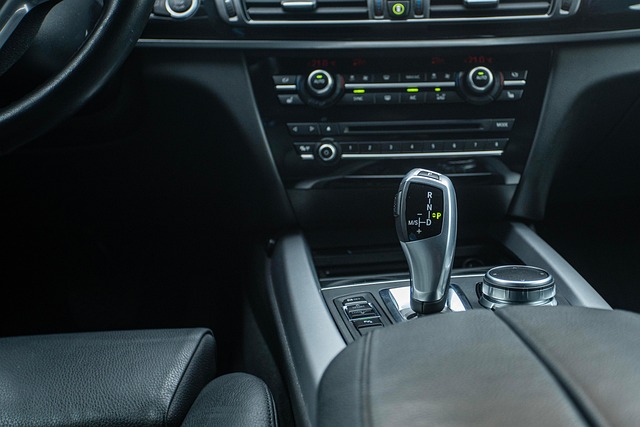Registering Your Car in California: A Comprehensive Guide with VIN Verification
Looking to register your car in California? This comprehensive guide breaks down the process, ensuring a smooth experience. We explore the essential requirements, from gathering vital documents to und…….

Looking to register your car in California? This comprehensive guide breaks down the process, ensuring a smooth experience. We explore the essential requirements, from gathering vital documents to understanding the importance of VIN (Vehicle Identification Number) verification—a key step in California’s registration process. Learn how to navigate each stage, avoid common issues, and successfully register your vehicle.
- Understanding the Requirements for Car Registration in California
- Gather Necessary Documents for Vehicle Registration
- The Role of VIN Verification in California Car Registration
- Step-by-Step Guide to Registering Your Car in California
- Common Issues and How to Resolve Them During Vehicle Registration
Understanding the Requirements for Car Registration in California

Registering a car in California involves understanding specific requirements to ensure your vehicle complies with state laws. One crucial step is confirming ownership through a process known as Vehicle Identification Number (VIN) verification. This involves cross-referencing the unique VIN on the vehicle with official records, ensuring the car has not been reported stolen or has any outstanding issues.
In California, you’ll need to provide proof of identity, residency, and insurance during the registration process. Additionally, for a smoother experience, many residents opt for mobile VIN verification services, allowing them to complete this critical step conveniently. Mobile vin verification or inspection ensures that your vehicle’s history is accurately checked by professionals using state-of-the-art technology, facilitating a swift and secure car registration process.
Gather Necessary Documents for Vehicle Registration

Before you begin the registration process, it’s crucial to gather all the essential documents for your vehicle. In California, you’ll need several key pieces of information and materials to ensure a smooth registration experience. One critical step is to obtain a Vehicle Identification Number (VIN) verification. This process involves a mobile VIN verifier or inspector who can provide a detailed report on the vehicle’s history, including any previous accidents or outstanding issues.
A valid registration certificate from the previous state of residence and proof of insurance are also mandatory. Additionally, you’ll require a completed application form for vehicle registration, which is available at the California Department of Motor Vehicles (DMV) website. Don’t forget to carry your driver’s license, title documents, and any other relevant paperwork that might be required during the inspection process. Having these in order will significantly expedite the car registration procedure.
The Role of VIN Verification in California Car Registration

In California, registering a car involves more than just filling out paperwork; it requires verifying the vehicle’s unique identifier, known as the Vehicle Identification Number (VIN). This process is crucial to ensuring that every car on the road meets safety and environmental standards. VIN verification acts as a critical check against fraud, helping to confirm the vehicle’s make, model, year, and other essential details. It also plays a vital role in tracking vehicle history, which can be essential for consumer protection and insurance purposes.
California offers various methods for VIN inspection, including mobile vin verifier services that allow owners to complete the verification process conveniently. These mobile vin verification options are particularly useful for busy individuals who may not have the time to visit a DMV office. By leveraging technology, such as mobile applications or online platforms, owners can quickly and easily obtain the necessary documentation, streamlining the registration process and ensuring their vehicles meet all legal requirements.
Step-by-Step Guide to Registering Your Car in California

Registering a car in California involves several steps, but with proper preparation, it can be a straightforward process. Here’s a step-by-step guide to ensure everything runs smoothly. First, gather all necessary documents including your vehicle’s registration certificate (if previously registered), proof of insurance, and a valid driver’s license. Next, complete the California Vehicle Registration Application, which can be found online or at any DMV office. This form requires detailed information about your car, such as make, model, year, and its current mileage.
Once all documents are in order, it’s time for the core process: VIN verification. You can perform this through a mobile vin inspection service, which streamlines the procedure by allowing a professional to remotely check your vehicle’s history and condition using its unique Vehicle Identification Number (VIN). After successful verification, submit your application along with the required fees at any DMV location or via their online portal. Upon approval, you’ll receive your new California registration certificate, validating your car’s legal status in the state.
Common Issues and How to Resolve Them During Vehicle Registration

Even with California’s streamlined registration process, issues can arise. One common problem is a discrepancy between the vehicle’s identified year or make through visual inspection and its actual specifications, which may be uncovered during the vin verification process. This often occurs when there has been previous damage or alterations to the car. To resolve this, gather updated documentation from the manufacturer or a reputable source confirming the exact year, make, model, and features of your vehicle.
Another challenge can be locating a registered owner for vehicles that have been previously owned or imported. In such cases, utilizing a mobile vin inspector or performing a vin inspection through an online database can help retrieve the necessary information. These methods ensure accurate ownership history, enabling you to legally register your car and avoid potential legal complications further down the line.
Registering a car in California involves understanding key requirements, gathering essential documents, and successfully completing a step-by-step process. VIN verification plays a crucial role in ensuring the legitimacy of your vehicle. By adhering to these guidelines and addressing common issues, you can navigate the registration process smoothly. Remember, proper documentation and adherence to state regulations are paramount for a successful car registration in California.







